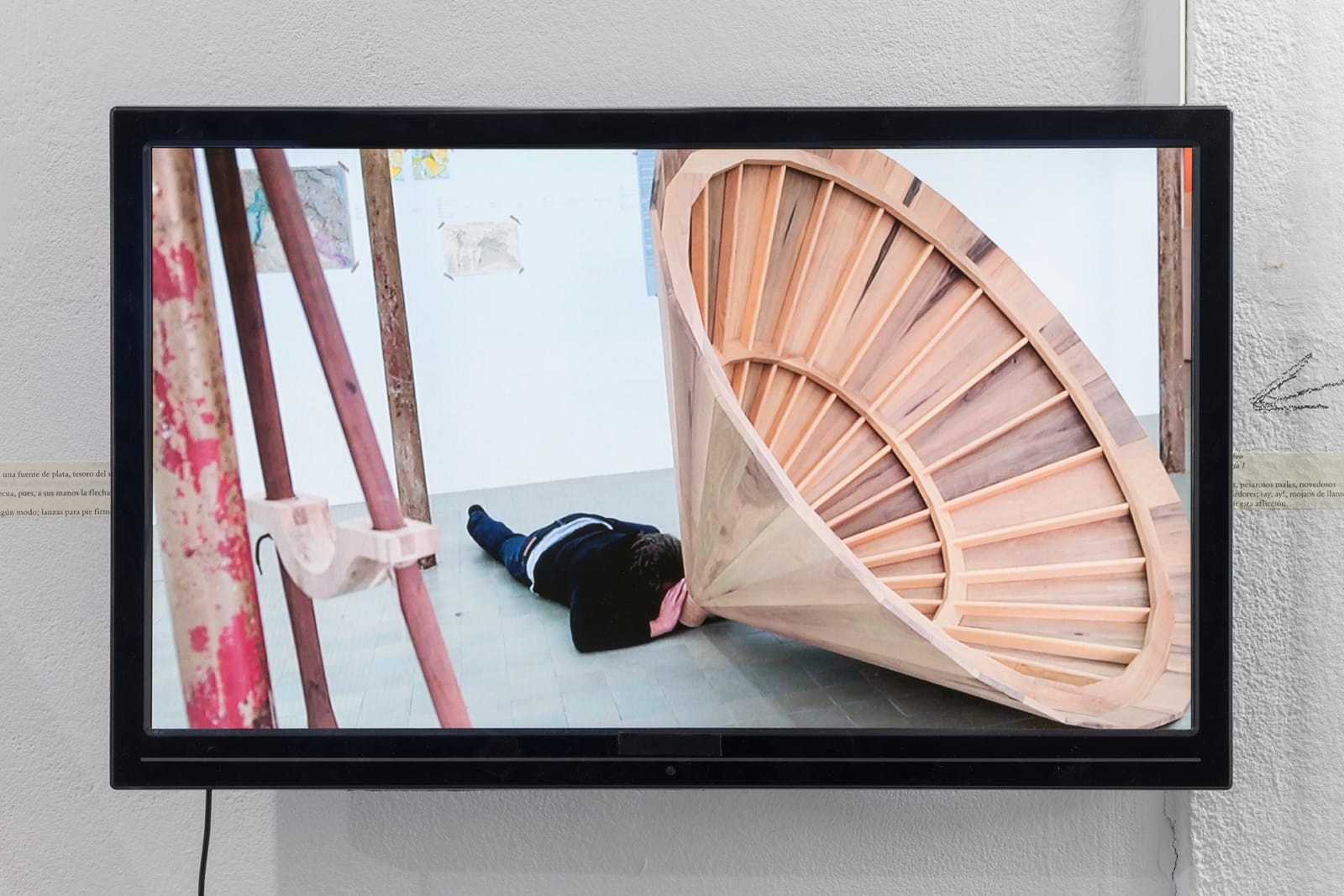Marcos Ávila-Forero France / Colombia, 1983
Otra versión para Los Persas de Esquilo, 2017
Installation: walnut wood sculpture, photographs, documents, video, sound.
Variable dimensions; sculpture: 214,8 x 214,8 x 130 cm; video: 5' 55''
Més imatges
Otra versión para Los Persas de Esquilo (Another take on The Persians by Aeschylus) points directly to the current situation in the Middle East, using as a main reference Pasolini’s...
Otra versión para Los Persas de Esquilo (Another take on The Persians by Aeschylus) points directly to the current situation in the Middle East, using as a main reference Pasolini’s documentary Appunti per un’Orestiade africana; its title reveals an imposition of the western perspective: «Africa is not a nation[…]», as the students in the film correctly note, «[…]but a continent». To which Africa is Pasolini referring then?
Drawing from his interviews with several geopolitics experts, Marcos Ávila Forero establishes an analogy between Aeschylus’ The Persians and the Syrian conflict, seeking to operate from a ‘perceptive transformation’ in order to question the image of the invading actor as well as the point of view from which historic accounts are created.
The Persians —the first Greek tragedy to touch on a contemporary political topic, the Battle of Salamis between the Greeks and the Persians— stands out for being a skilful exercise of political propaganda. Aeschylus, member of the winning side (Greece), decides to lay out the facts from the perspective of the defeated (Persia). Thus, and under the pretext of praising the dignity of the defeated people, he actually performs an ode to the victorious Greek, described as a «free people» by their enemies, which in turn, present themselves as «barbarians».
On this basis, Another take on The Persians by Aeschylus proposes a space for deliberation through the construction of an ‘impossible object’: a loud-hailer, an instrument to reclaim social rights which, simultaneously, functions as a vessel. Two means of communication assembled in a unique hybrid tool.
Drawing from his interviews with several geopolitics experts, Marcos Ávila Forero establishes an analogy between Aeschylus’ The Persians and the Syrian conflict, seeking to operate from a ‘perceptive transformation’ in order to question the image of the invading actor as well as the point of view from which historic accounts are created.
The Persians —the first Greek tragedy to touch on a contemporary political topic, the Battle of Salamis between the Greeks and the Persians— stands out for being a skilful exercise of political propaganda. Aeschylus, member of the winning side (Greece), decides to lay out the facts from the perspective of the defeated (Persia). Thus, and under the pretext of praising the dignity of the defeated people, he actually performs an ode to the victorious Greek, described as a «free people» by their enemies, which in turn, present themselves as «barbarians».
On this basis, Another take on The Persians by Aeschylus proposes a space for deliberation through the construction of an ‘impossible object’: a loud-hailer, an instrument to reclaim social rights which, simultaneously, functions as a vessel. Two means of communication assembled in a unique hybrid tool.












